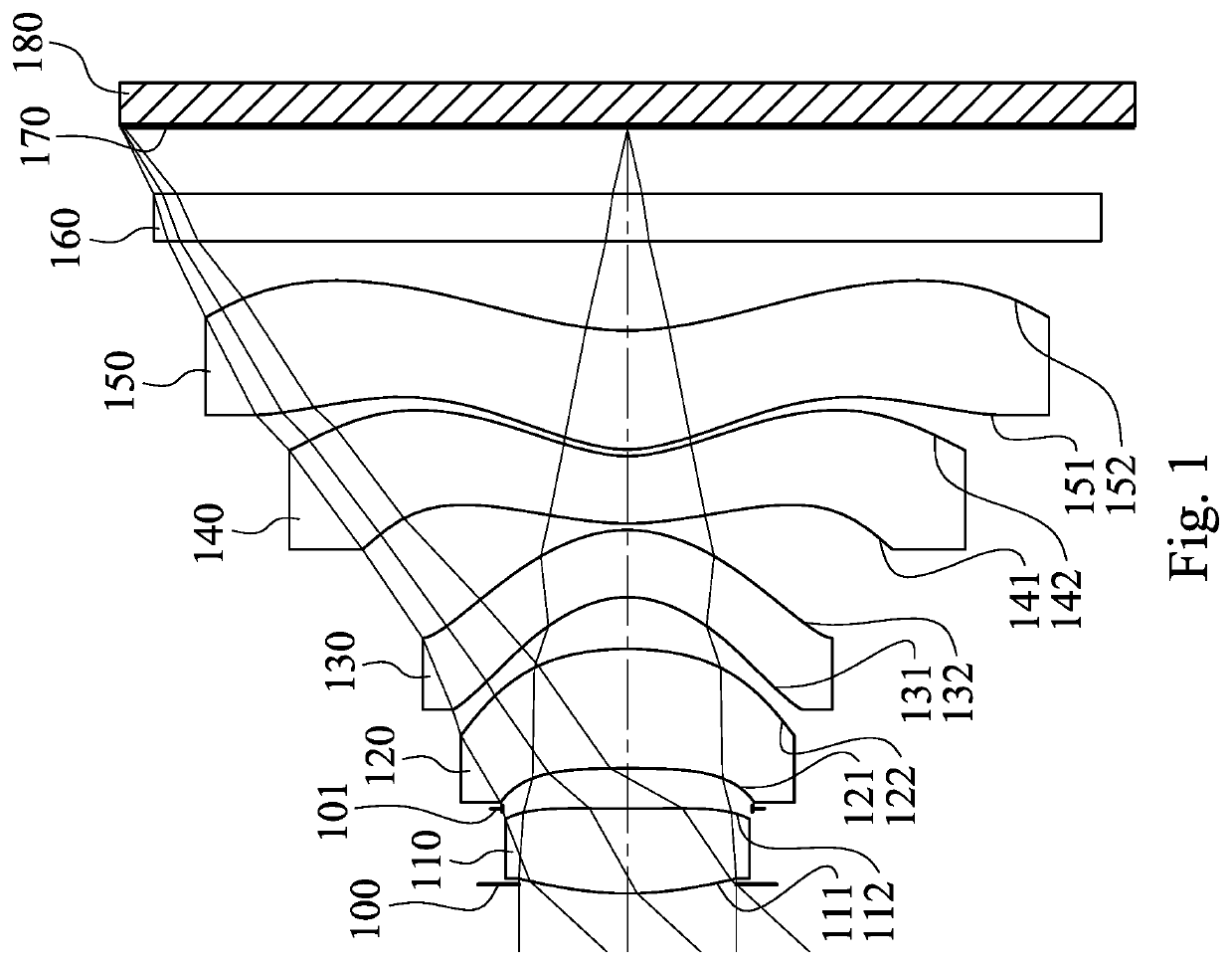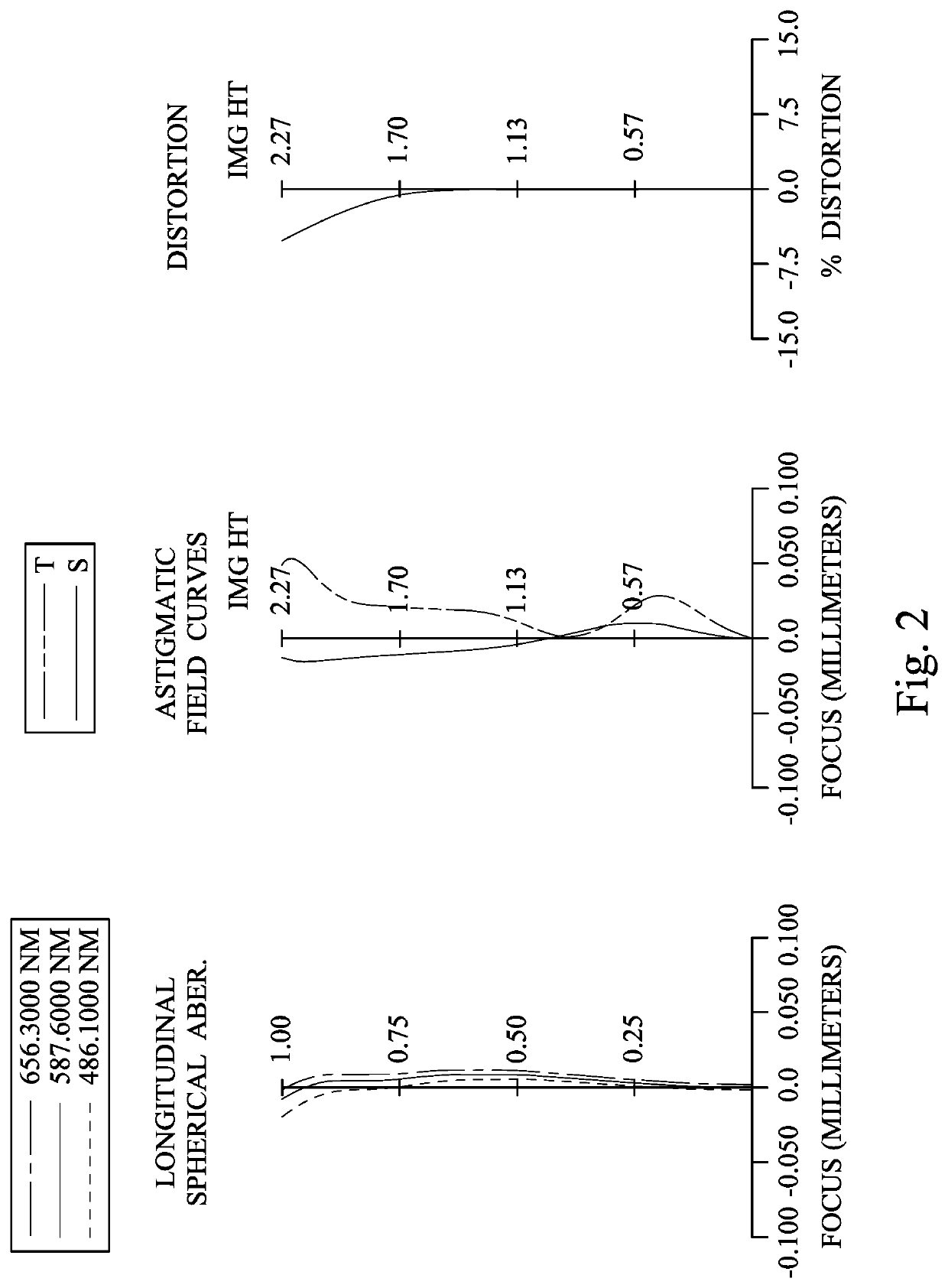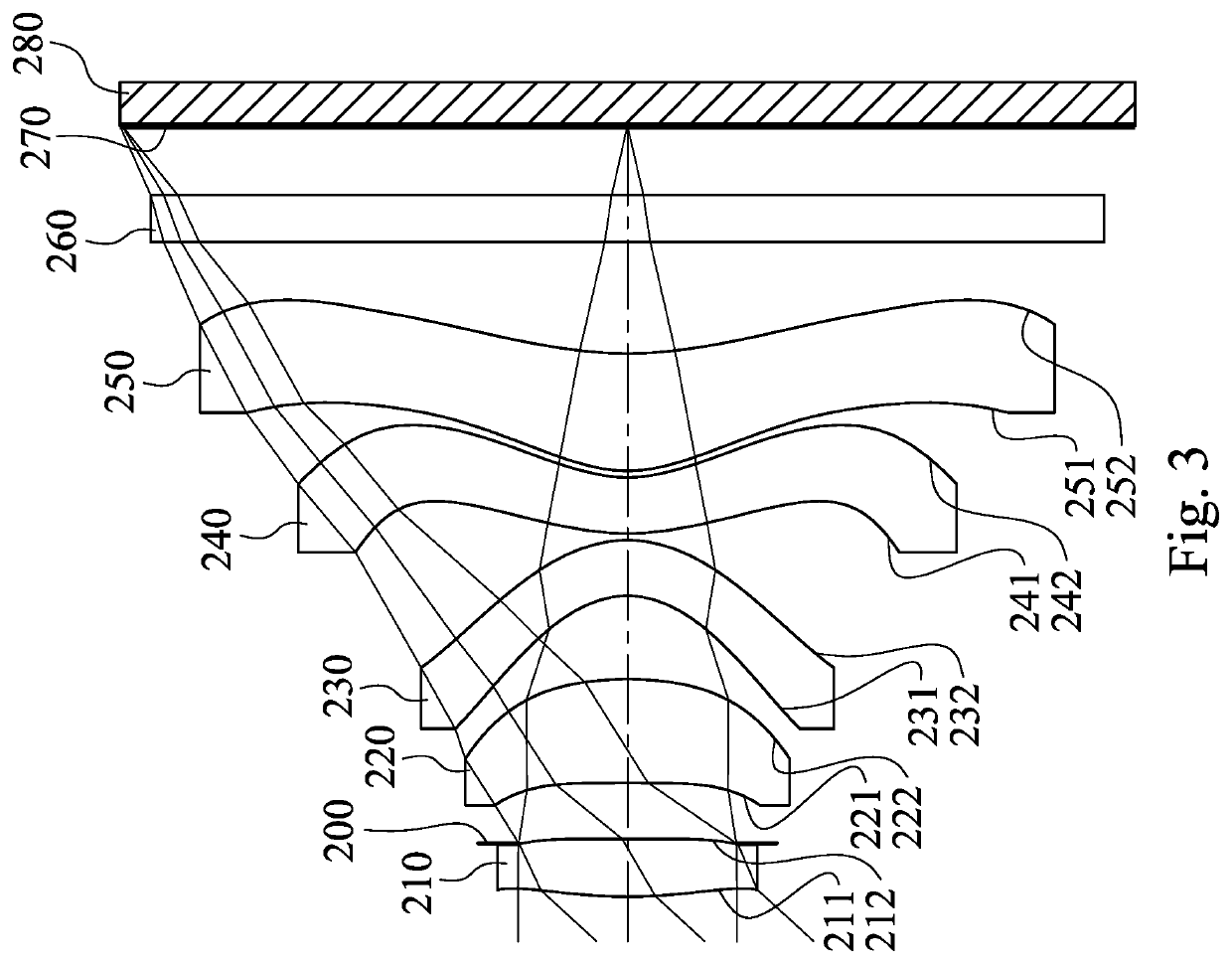Imaging lens assembly, imaging apparatus and electronic device
a technology of imaging apparatus and lens, applied in the direction of lenses, optics, instruments, etc., can solve the problems of inability to provide the feature of a large field of view, the total track length of the photographing module is longer, and the quality of the conventional photographing module is difficult to meet the requirements of high quality and compactness
- Summary
- Abstract
- Description
- Claims
- Application Information
AI Technical Summary
Benefits of technology
Problems solved by technology
Method used
Image
Examples
1st embodiment
FIG. 1 is a schematic view of an imaging apparatus according to the 1st embodiment of the present disclosure. FIG. 2 shows spherical aberration curves, astigmatic field curves and a distortion curve of the imaging apparatus according to the 1st embodiment. In FIG. 1, the imaging apparatus includes an imaging lens assembly (its reference numeral is omitted) and an image sensor 180. The imaging lens assembly includes, in order from an object side to an image side, an aperture stop 100, a first lens element 110, a stop 101, a second lens element 120, a third lens element 130, a fourth lens element 140, a fifth lens element 150, an IR-cut filter 160 and an image surface 170, wherein the image sensor 180 is disposed on the image surface 170 of the imaging lens assembly. The imaging lens assembly includes five lens elements (110, 120, 130, 140 and 150) without additional one or more lens elements inserted between the first lens element 110 and the fifth lens element 150.
The first lens ele...
2nd embodiment
FIG. 3 is a schematic view of an imaging apparatus according to the 2nd embodiment of the present disclosure. FIG. 4 shows spherical aberration curves, astigmatic field curves and a distortion curve of the imaging apparatus according to the 2nd embodiment. In FIG. 3, the imaging apparatus includes an imaging lens assembly (its reference numeral is omitted) and an image sensor 280. The imaging lens assembly includes, in order from an object side to an image side, a first lens element 210, an aperture stop 200, a second lens element 220, a third lens element 230, a fourth lens element 240, a fifth lens element 250, an IR-cut filter 260 and an image surface 270, wherein the image sensor 280 is disposed on the image surface 270 of the imaging lens assembly. The imaging lens assembly includes five lens elements (210, 220, 230, 240 and 250) without additional one or more lens elements inserted between the first lens element 210 and the fifth lens element 250.
The first lens element 210 wit...
3rd embodiment
FIG. 5 is a schematic view of an imaging apparatus according to the 3rd embodiment of the present disclosure. FIG. 6 shows spherical aberration curves, astigmatic field curves and a distortion curve of the imaging apparatus according to the 3rd embodiment. In FIG. 5, the imaging apparatus includes an imaging lens assembly (its reference numeral is omitted) and an image sensor 380. The imaging lens assembly includes, in order from an object side to an image side, an aperture stop 300, a first lens element 310, a stop 301, a second lens element 320, a third lens element 330, a fourth lens element 340, a fifth lens element 350, an IR-cut filter 360 and an image surface 370, wherein the image sensor 380 is disposed on the image surface 370 of the imaging lens assembly. The imaging lens assembly includes five lens elements (310, 320, 330, 340 and 350) without additional one or more lens elements inserted between the first lens element 310 and the fifth lens element 350.
The first lens ele...
PUM
 Login to View More
Login to View More Abstract
Description
Claims
Application Information
 Login to View More
Login to View More - R&D
- Intellectual Property
- Life Sciences
- Materials
- Tech Scout
- Unparalleled Data Quality
- Higher Quality Content
- 60% Fewer Hallucinations
Browse by: Latest US Patents, China's latest patents, Technical Efficacy Thesaurus, Application Domain, Technology Topic, Popular Technical Reports.
© 2025 PatSnap. All rights reserved.Legal|Privacy policy|Modern Slavery Act Transparency Statement|Sitemap|About US| Contact US: help@patsnap.com



